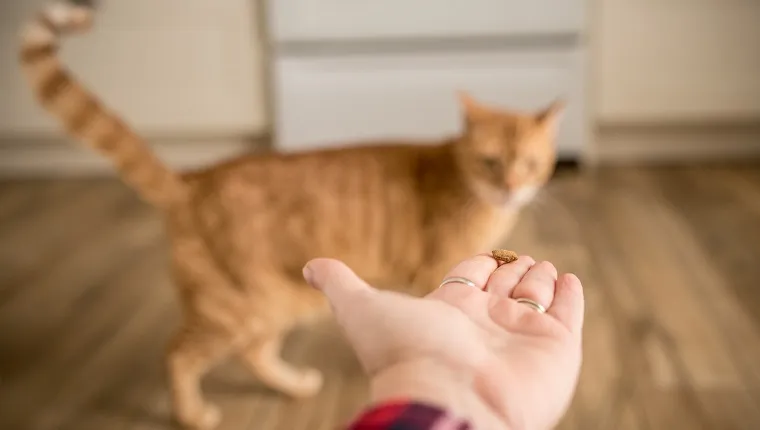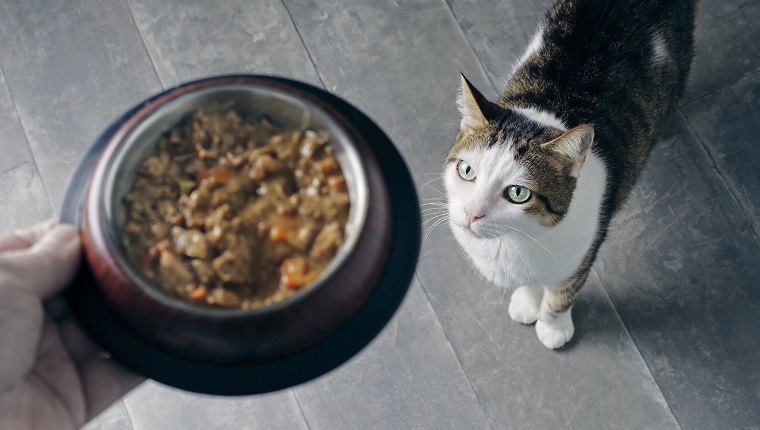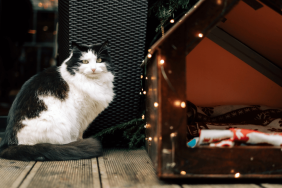Food allergies in cats come about when the immune system has an over-reaction in response to a specific type of food. In many cases, these allergic reactions appear as visible skin irritations.
Food allergies can also cause gastrointestinal issues, including vomiting or diarrhea. If you see signs that your cat might have a food allergy, then you must get to a veterinarian for a proper diagnosis and treatment.
Here’s what you should know about the symptoms, causes, and treatments for food allergies in cats.
Symptoms Of Food Allergies In Cats
Symptoms of food allergies in cats can vary in severity. Sometimes cats have reactions to foods they’ve eaten only one time in a small amount. Other times, cats have prolonged issues from steady exposure to something in their regular diet.
The main symptoms of food allergies in cats are as follows:
- Skin irritations or lumps
- Vomiting
- Diarrhea
- Weight or hair loss
- Coat appears dull
- Ear infections
- Less of an appetite
If you notice any of these symptoms on a consistent basis, there’s a chance that your cat is experiencing a food allergy.
Causes Of Food Allergies In Cats

Veterinarians do not know exactly why cats develop allergies to certain foods.
In many cases, allergic reactions in response to food are triggered by a specific protein. These include sources of meat, such as beef or lamb. Meat should make up a majority of a cat’s diet.
Corn has also been shown to prompt food allergies in certain cats. Other foods may trigger reactions as well, and common culprits include soy, rice, gluten, potatoes, and dairy.
Beyond being allergic to a specific food, cats might also develop allergies due to the presence of artificial colors, flavors, or preservatives contained in some commercially manufactured pet foods.
Treatments For Food Allergies In Cats
If your veterinarian suspects your cat has food allergies, the vet will do a physical exam and ask detailed questions about your pet’s diet. If your cat’s reaction to a food allergy seems to come and go, it may be helpful to show your vet photographs of any skin irritation or other reactions.
Food allergies in cats are usually treated by switching the cat’s diet. Vets do this by a process of elimination, where they recommend slowly taking certain specific ingredients out of the diet to see if symptoms improve.
This can be a long process, so patience is key. Avoid the temptation to simply switch completely to another store-bought brand of cat food without your vet’s guidance.
If your cat suffers badly from their food allergies, your vet may prescribe a temporary course of antihistamine medicine to offer more immediate relief.
Does your cat have any food allergies? How did your vet help you eliminate certain foods from your cat’s diet? Let us know in the comments section below!









